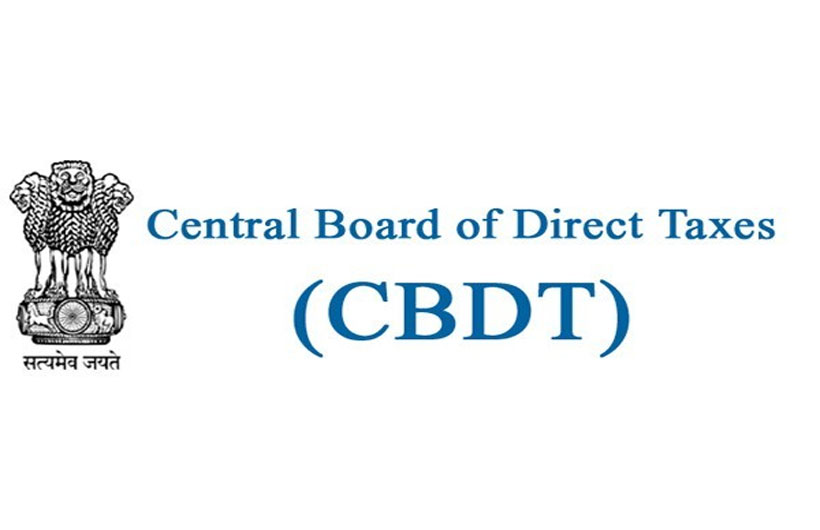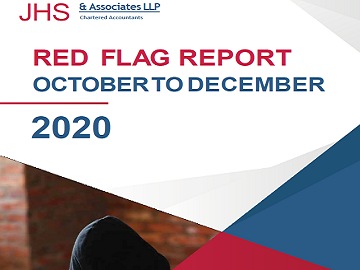Reference: Central Board of Direct Taxes
Update:
CBDT enters into 26 APAs during the current Financial Year:
The Central Board of Direct Taxes (CBDT) has entered into 26 APAs in the first 5 months of the current financial year (April to August, 2019). With the signing of these APAs, the total number of APAs entered into by the CBDT as of now stand at 297, which includes 32 BAPAs. Out of these 26 APAs, 1 is a BAPA entered into with the United Kingdom and the remaining 25 are UAPAs. The BAPA and UAPAs entered into during this period pertain to various sectors and sub-sectors of the economy like Information Technology, Banking, Semiconductor, Power, Pharmaceutical, Hydrocarbon, Publishing, Automobile, etc. The international transactions covered in all these agreements, inter alia, include the following:-
contract manufacturing
provision of software development services
back office engineering support service
provision of back office (ITeS) support services
provision of marketing support services
payment of royalty for use of technology and brand
trading and distribution
payment of charter charges
corporate guarantee
intra-group services
interest on financial instruments
Implication:
The process of APA scheme will strengthen the Government’s resolve of fostering a non-adversarial tax regime.
Update:
CBDT raises revenue effect threshold for issue of certificates u/s.197/195 to Rs.10cr:
CBDT raises threshold of revenue effect for issue of certificates u/s 197/195 needing approval of Commissioner of Income Tax (Intl. Taxation) to Rs.10 crores. Threshold raised in response to the proposal put forth to address various administrative and systematic difficulties related to amount of revenue forgone under newly introduced system of online application u/s 197/195 of IT Act, 1961. Clarifies that the raised threshold will be applicable for all stations in respect of all applications of non-resident taxpayers either pending as on date or filed hereafter.
Approval of CIT (Intl. Taxation) not required for certificates U/s. 197/195 if revenue effect is less than Rs. 10 crore:
Reference: Central Board of Indirect Taxes and Customs
Update:
Roll out of Project Import Module in ICES:
Project Imports Scheme provides that all the goods imported for the purpose of setting up of Industrial Project or substantial expansion of existing industrial projects be subjected to single classification under heading 98.01 of Custom Tariff Act, 1975 and single rate of duty instead of merit assessment of imported goods.
To overcome the difficulties faced due to manual processing, Project Imports module has been developed in ICES. Kind attention is drawn to ICES Advisory 13/2019 dated 29.05.2019 issued in this regard wherein processes relating to Project Import Module were explained.
Implication:
Project import module shall cover following processes: (a) Registration of a Project and generation of a Project number (b) Bond Registration for Project Imports (c) Filing of provisional BEs with project number and bond details. Item wise debits in the project/bond for every BE (d) Finalization of the Provisional BEs and re-crediting of the Bond
Reference: Reserve Bank of India
Update:
RBI Makes External Benchmark Based Interest Rate mandatory for certain categories of loans from October 1, 2019:
It was observed that due to various reasons, the transmission of policy rate changes to the lending rate of banks under the current MCLR framework has not been satisfactory. The RBI therefore has issued a circular making it mandatory for banks to link all new floating rate personal or retail loans and floating rate loans to MSMEs to an external benchmark effective October 1, 2019.
Implication:
The banks are free to choose one of the several benchmarks indicated in the circular. The banks also free to choose their spread over the benchmark rate, subject to the condition that the credit risk premium may undergo change only when borrower’s credit assessment undergoes a substantial change, as agreed upon in the loan contract.
Reference: Security Exchange board of India
Update:
YES Bank settles case with SEBI:
YES Bank and its compliance officer Shivanand Shettigar have paid ₹66.05 lakh to market regulator SEBI in a case related to alleged disclosure lapses to the exchanges on divergences and provisioning. While YES Bank remitted ₹51.6 lakh as settlement amount, the compliance officer paid ₹14.45 lakh as settlement charges on August 27, according to two separate orders by SEBI.
The case relates to a regulatory filing by YES Bank on the BSE and NSE on February 13 regarding the report by the Reserve Bank of India on divergence in asset classification and provisioning for position as on March 31, 2018. YES Bank had reported ‘nil’ divergences in its asset classification and provisioning from the RBI norms. Then, on February 15, it made another filing, which said the report is confidential and the RBI had viewed the matter seriously.
Implication:
The matter was settled on the payment of amount which was approved by the panel as a settlement amount
Reference: Employment / Labour Laws
Update:
ESIC Signs an Agreement with SBI for Payments To ESIC Beneficiaries on Real Time Basis
A Memorandum of Agreement has been signed between the Employees’ State Insurance Corporation (ESIC) and SBI today in accordance with which, the SBI would provide e-payment services directly to the bank accounts of all ESIC beneficiaries and payees without any manual intervention as an integrated and automated process. The SBI would provide e-payment integration with the Enterprise Resource Planning (ERP) processes of ESIC through its Cash Management Product (CMP) e-payment technology platform.
The e-payment integration would effect statutory benefit payments to ESIC beneficiaries as well as other payees on real time basis, reducing time lags and delays and at the same time, help to eliminate mistakes and errors caused by repetitive and manual data entries. The new system will benefit all stakeholders of ESIC. The agreement was signed in the presence of Shri Rajkumar, DG, ESIC and Shri Sunil Wadhera, DGM, SBI.
Reference: News
Update:
PIL against Paytm post paid wallet: RBI, company oppose it
PIL against Paytm post paid wallet claiming that Paytm Payments Bank’s post paid\’ service was operating contrary to the existing law and guidelines regulating such entities
The Reserve Bank of India Wednesday told the Delhi High Court that a Public Interest Litigation (PIL) cannot be used as a weapon to challenge the financial or economic decisions taken by the government or the RBI.
The RBI made the submission in response to a PIL alleging that online payments platform Paytm was providing lending facilities in violation of the law regulating such activity.
The affidavit was filed before a bench of Chief Justice D N Patel and Justice C Hari Shankar which has listed the matter for further hearing on September 18.
The petition filed by Abhijit Mishra, a financial economist, claimed that Paytm Payments Bank Ltd\’s \’post paid\’ service was operating contrary to the existing law and guidelines regulating such entities.
Reference: General
Update:
Amendment in Central Civil Services (Conduct) Rules, 1964 regarding acceptance of gifts by Government Servants:
Ministry of personnel, Public Grievances and Pension has amended Central Civil Services (Conduct) Rules, 1964 prescribing ceiling for receiving gifts by Government servant so as to bring the uniformity in provisions of CCS (Conduct) Rules 1964, AIS (Conduct) Rules, 1968 and Foreign Contribution (Acceptance or retention of Gifts or Presentations) Rules, 2012.
Key Amendments:
-In any other case, a government servant shall not accept any gift without the sanction of the government, if the value exceeds-
Rupees 5000 in case of Government servant holding any Group ‘A’ or Group ‘B’ post; and
Rupees 2000 in case Government servant holding any Group ‘C’ post
-Notwithstanding anything contained in sub-rule (2) and (3), a Government servant, being a member of the Indian delegation or otherwise, may receive and retain gifts from foreign dignitaries in accordance with the provisions of The Foreign Contribution (Acceptance or Retention of Gifts or Presentation) Rules, 2012, as amended from time to time.
Update:
Corporate affairs ministry to get powers to inspect LLPs:
Over 1.4 lakh firms registered as Limited Liability Partnerships (LLPs) will now be open for inspection by the Ministry of Corporate Affairs (MCA), officials close to the development said. A notification in this regard is likely to be issued soon, which could be as early as next week, they said.













